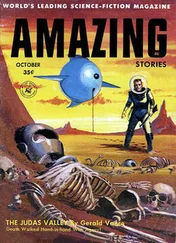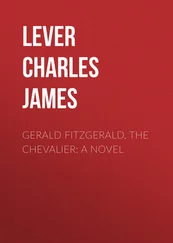So. While we were picking the bones of the capon, I, pretending to be a little lively with wine, said: ‘Upon my word, madame, you are a cook fit for a king, and beautiful as a queen! And you, Monsieur Morkens, are a jolly good fellow! I’ll tell you what – I’ll stand you a bowl of rum punch in the English style, and mix it myself according to Lord Whiterock’s own secret recipe…. You, old fellow, will be so good as to fetch me a bottle of rum, a bottle of brandy, and a bottle of port wine. You, madame, will get me lemons and sugar, nutmeg and ginger, cinnamon and cloves … and I see a fine old ale-bowl over there which will be the very thing to mix it in!’
It worked. He went to fetch the spirits and the wine; she took her keys to the spice cupboard; and I, uncorking my bottle, emptied it rapidly into the bowl. It went without a hitch. In fifteen minutes the punch was mixed. Laudanum has a bitter, cloying taste, but the rum, the brandy, the port, the sugar and the spices that I mixed in that punch would have disguised it if it had been so much asafoetida. I insisted on filling immense bumpers. You understand – I had been taking laudanum therapeutically for twenty years or so, so that what I swallowed in my punch was merely a homeopathic dose. But the effect of the drug on the Morkenses soon became apparent. Their minds wandered; the pupils of their eyes contracted. They drank again and again, not knowing or caring how much they drank, never noticing that I had taken no more than one glass. All the same, they were tough, those two!
It was eleven o’clock before Madame Morkens became unconscious. Her husband saw her fall across the table. He pointed at her, chuckling stupidly, and then rolled sideways out of his chair and fell to the floor with a crash. ‘ Hodi mihi, cras tibi ,’ I said, ‘today to me, tomorrow to thee, my friends…. And now I think I will punish you a little. A vindictive man would burn your inn over your heads. But I …’
… In short, I went through their pockets, etcetera, for their keys. As I had guessed, it was the woman who had in her keeping the most important of the keys – one in particular, a little one, suspended on a piece of string which she wore about her neck. The key of the cash box, evidently. And where would they hide their cash box, these two? Unquestionably, under their bed. It was so. After twenty years in the Grande Armée one acquires experience in looting, eh?
I found the loose plank, and had that cash box open in five minutes. It contained banknotes and gold to the value of about seventy thousand livres, which I stuffed into my pockets.
Then I took my little valise, and put on my cloak and my hat, and went out. The landlord and his wife were stertorously snoring, almost as if their skulls had been smashed. I had nothing to fear from them. The great dog in the yard barked furiously, but luckily for me he was chained. I got into the stable with the aid of Morkens’s key, and lit the lantern, by good luck, in no time at all. I always keep my tinderbox dry, as you know. The saddle was hanging on a nail. It was a mouldering old English hunting saddle, but I made shift to buckle it on the mare Cocotte.
I had my left foot in the stirrup, and was ready to mount, when I heard another horseman approaching.
Now, the manner of his approach made me pause. A bona-fide traveller, coming to an inn at night, makes a noise, shouts ‘Landlord! Landlord!’ – is, in fact, in a devil of a hurry to get in out of the rain; especially on such a night as this was. Furthermore, I heard him speak to the dog in Flemish, and the dog was silent. A friend of the family, evidently. He tried the front door, and found it locked. Then, leading his horse, which was very weary, he came round to the back.
Believe me when I tell you that I slid out of the stirrup and into the hay as I heard that fellow approach. His horse, alone, came into the stable before him; he had been there before – he knew his way. I could not see him; he was of the colour of the darkness, an iron-shod shadow, only I heard him walking and breathing.
Also, I heard the rider knocking upon the back door of the inn, and calling in a kind of subdued shout: ‘Morkens, Morkens!’ There was no answer. He came stumbling and splashing back, cursing at the end of his teeth, and I heard him call the name of Cornelys. The rain washed most of his voice away; all the same, I heard him between the drops … ‘Cornelys! … Cornelys! …’
Here, you may say, was the time to get out. So it was. But you know that there are times when curiosity is somewhat stronger than the desire to live. I had guessed that this night-bird, since he was in the confidence of Morkens, who was a cut-throat, must be some sort of highway robber – especially since he came quietly by night, on an exhausted horse. I wanted to know more, quite simply; therefore I waited, particularly after I heard him call for Cornelys the blacksmith, who was another thorough-going rascal.
Cornelys came soon, with a lantern. By the sound of him I knew that he was booted and spurred: a nice way for a simple blacksmith to be, at that time of night, on a lonely road! Furthermore, his voice had changed somewhat since last I had heard it; now he spoke hard and tight. Following the newcomer into the stable, Cornelys said: ‘What’s this? What’s the matter with Morkens and Marie?’
He spoke in Flemish, and in Flemish the other man replied: ‘Dead drunk in the kitchen.’
‘Impossible,’ said Cornelys. ‘Can’t be. Not now!’
‘No? Go and see.’
He went, but soon returned, grunting incredulously: ‘This night of all nights!’ The other man groaned. ‘What’s the matter with you, Klaes? Are you hurt?’ asked Cornelys.
‘No; tired, dead tired, Cornelys. Dropping where I stand,’ said the man who had been addressed as Klaes. Indeed, he sounded tired.
‘Makes no difference,’ said Cornelys the blacksmith. ‘In any case, it was I who was to carry the word. I am ready…. Well?’
‘Well,’ said the man called Klaes, speaking very deliberately, like a man who is drunk or used up. ‘Get it right the first time, Cornelys, because I swear I’m in no condition to repeat it … oh, dear God, how tired I am! … Listen carefully, now; the password is the English word, Ditch. Have you got that?’
‘ Ditch ,’ said Cornelys.
‘You will pass that word to Collaert’s vedettes,’ said Klaes.
‘Where?’ asked Cornelys.
‘Between here and Braine le Comte,’ Klaes said.
‘I will pass the word Ditch to Collaert’s vedettes between here and Braine de Comte,’ Cornelys said. ‘And then?’
‘Then you will be conducted at once to General Collaert of the cavalry, by his aide-de-camp, Brigadier de Beukelaer, who will have a fresh horse waiting. You will tell your message to Collaert in person. This is what you will say: That you come from Jan Klaes (that, of course, is myself). That Klaes has been compelled to take devious roads because he has been shadowed. That Jan Klaes has been forty-eight hours in the saddle, and therefore sends you to deliver to Collaert a message which should have gone in advance to Wellington at Brussels. … Is this fixed in your mind?’
Cornelys repeated it, word-perfect. He was not the fool that he pretended to be…. Or was he? I don’t know. I have known congenital idiots, and nagging women, who had that same curious knack of repeating, with just such exactitude, precisely what vibrated the nerves of their ears. Empty domes throw back the most perfect echoes…. This Cornelys repeated the very inflection of the man Klaes, who, in something between a groan and a yawn, expressed approval, and then went on.
‘Excellent. You will say this to Collaert, then: Our man de Wissembourg, whom Collaert knows, has taken the place of Lacoste, as Napoleon’s guide. Napoleon is completely ignorant of the terrain around St Lambert. It is reasonably certain that the Emperor will deploy his cavalry before the plateau of Mont St Jean. This force of cavalry will consist mainly of Milhaud’s cuirassiers – twenty-six squadrons, supported by Lefebre Desnouette’s division. Altogether, between three and four thousand of the cream of Napoleon’s heavy cavalry …. Have you got that?’
Читать дальше











